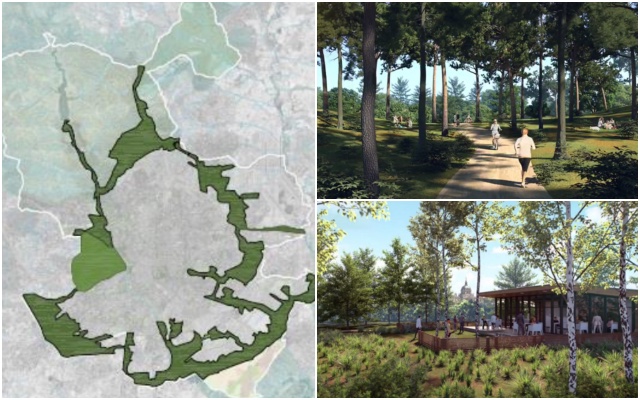Madrid authorities are looking to develop a huge “environmental belt” made up of between 100,000 and 450,000 trees, new parks and leisure areas and even green bridges over some of the city’s main motorways.
It’s been dubbed “El Bosque Metropolitano” (the Metropolitan Forest) and according to deputy mayor Begoña Villacís it could be “the largest green infrastructure to be built in Europe in the next decade”.
On Thursday, Madrid City Council launched the contest for the mega-project’s conception, with an initial €4.1 million in EU funds to be granted to the chosen urban developer.
The total budget for the full 600 hectares of the “Bosque Metropolitano” is expected to be €75 million, €16 million of which Madrid City Hall already has available.
The Spanish capital is already home to two large parks – El Retiro and Casa de Campo – and offers 22.83m2 of green space per inhabitant (above the recommended WHO threshold of 10-15m2/capita).
But Madrid has also been plagued by poor air quality for years due primarily to its high levels of traffic.
READ MORE:
Madrid and Barcelona issued EU ultimatum over pollution levels
Why scrapping Madrid's anti-pollution traffic scheme is 'absurd'
Madrid authorities believe the Metropolitan Forest could help to purify the air of polluting particles, reduce emmissions overall and act as a thermal regulator for the city by addressing the ‘urban heat island’ effect.
From a social standpoint, the project will bring more green spaces to parts of Madrid where there’s currently a scarcity such as the south, in effect connecting the entire city through a green ring which will run around it.
Endemic tree species such as holly oaks, pines, poplars and strawberry trees will be planted throughout and even bridges running over busy motorways such as the A-3 and R-3 will become ecoducts, green bridges with trees and foliage that allow wildlife to cross over safely.
Madrid authorities hope that by the time of the project’s completion, which it estimates to be in 12 years, the Metropolitan Forest will have the capacity to absorb 170,000 tonnes of CO2.



 Please whitelist us to continue reading.
Please whitelist us to continue reading.
Member comments